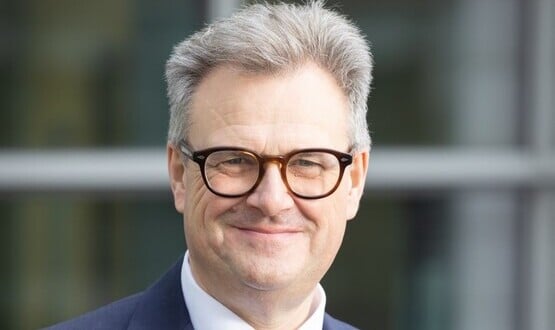PCS Speaker Profile: Dylan Roberts on delivering integrated services
- 18 September 2017

Dylan Roberts, chief digital and information officer at Leeds City Council, will be chairing the closing plenary at Digital Health’s Public Cyber Security conference, 7 December. In the latest of our profiles of speakers at the conference, Roberts speaks to Vivienne Raper about delivering integrated services to citizens and the importance of common standards to maintain cyber security in multidisciplinary teams.
Dylan Roberts has radical ideas for using technology to integrate health and social care, to deliver better public services and to save money while doing so.
As chief digital and information officer for Leeds City Council and three Leeds CCGs, his big idea is ‘city as platform’ – delivering public services to citizens using multidisciplinary teams who collaborate across the local area.
“The way we deliver public services needs to fundamentally change,” he says, explaining the potential for a £700 million funding gap across Leeds health and social care organisations by 2021.
New models of care
Roberts explains that a tiny fraction of the population use nearly half of the health and social care resources in the city of Leeds. He gives the example of frail older people.
Roberts says that “dealing with frailty” needs “a multidisciplinary team” made up of social services and the council, working with GPs, community health and potentially people from an acute hospital.
“What’s evident is that lots of people need to be using shared tech capabilities that can interoperate with each other.”
He explains that ‘city as platform’ is about switching from technology based around the needs of organisations, to being focused around the needs of places and people. These people include citizens as well as staff in voluntary organisations.
Delivering for Leeds
Roberts told Digital Health News that he’s been progressing the information and technology agenda to underpin these new models of care since 2016. Leeds as a city has a blueprint for what needs to be shared between organisations and a commitment to work towards these.
Part of this is developing the digital programmes to underpin the delivery of the Leeds sustainability and transformation plan (STP), part of the West Yorkshire STP, alongside cross-cutting programmes around – for example – infrastructure.
As an example of a cost improvement programme, he mentions multidisciplinary teams printing from the same printer, or using instant messaging technology to find and talk to each other.
“We have a commitment to do that in a common way and merge our infrastructure strategies so there’s a common infrastructure platform to do this.”
A consistent approach
Roberts argues that integrated public services must take “a consistent approach” to cyber security by adopting common frameworks and toolkits.
“If you’re doing information governance training for people in a multidisciplinary team, they need to be working to common standards in terms of what they can – and can’t-do.”
Skinning a cat
Roberts argues central government bodies that provide assurance on information security are merely “different ways to skin a cat” – akin to putting a lock on an external door as an alternative to locking the desk itself.
“The processes, standards and policies, in terms of what is good cyber security or information governance, are the same in all organisations,” he says. “There is significant opportunity to do this in a more joined-up way.”
At a local level, he recommends using a common pool of cyber security experts to deliver cost savings and make best use of limited expertise. “Instead of seven people in siloed organisations, you potentially get three and pay them more.”
Speaking about his session at Public Cyber Security, he says that delegates will get a view from senior government officials on “what they might be willing to do to move to these common positions”.
He also hopes they will learn about the possibilities and benefits of taking a place-based approach to delivering public services to citizens.
Dylan Roberts will chair the closing plenary debate ‘Challenges of Delivering Integrated Services to Citizens while Staying Secure’ 16:10 – 16:55 at Public Cyber Security, 7 December, ICC, Birmingham.
PCS is the new show focused on protecting citizen-facing public services and is free to attend for public sector information security, IT and IG professionals.




